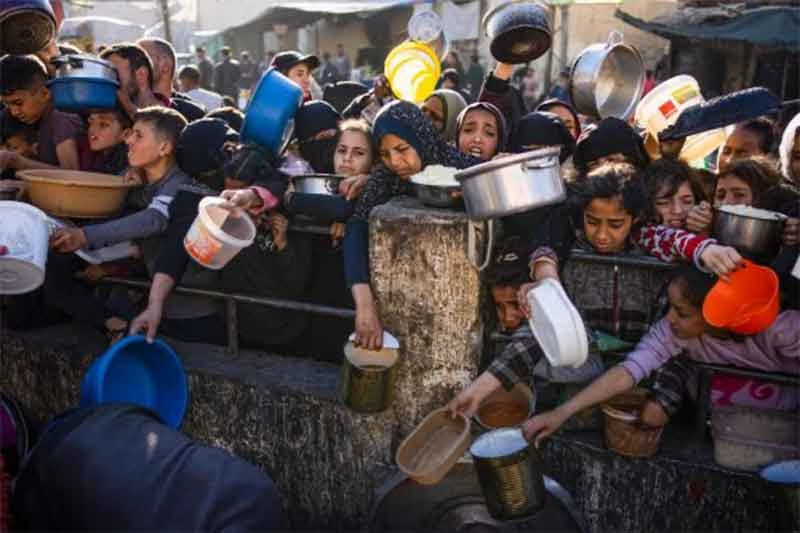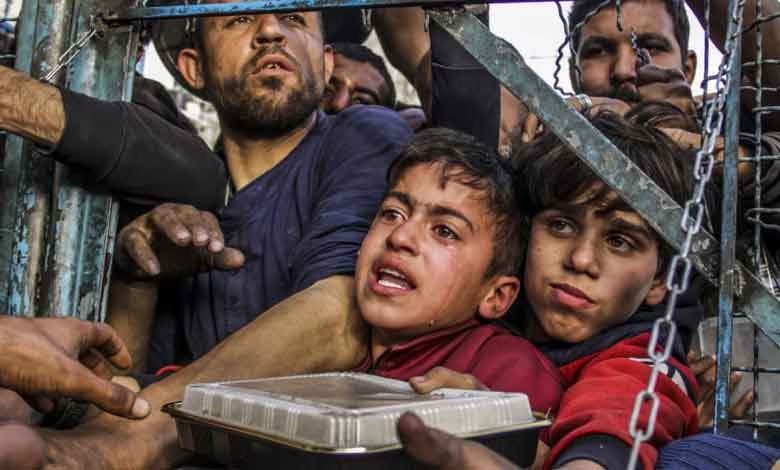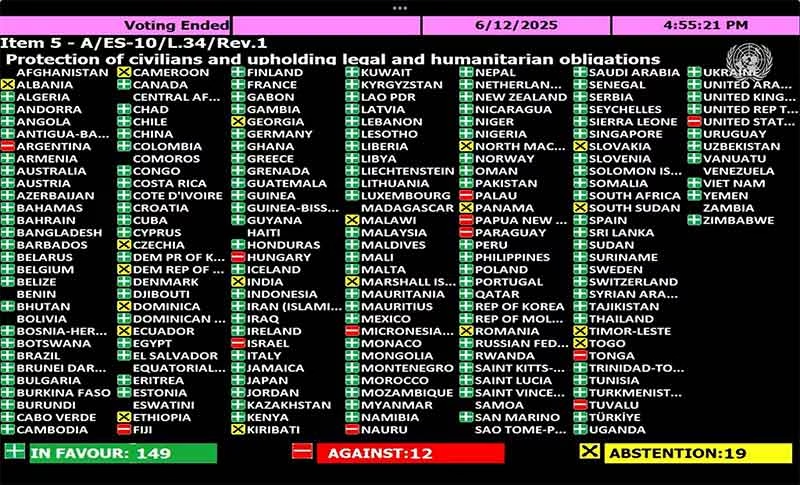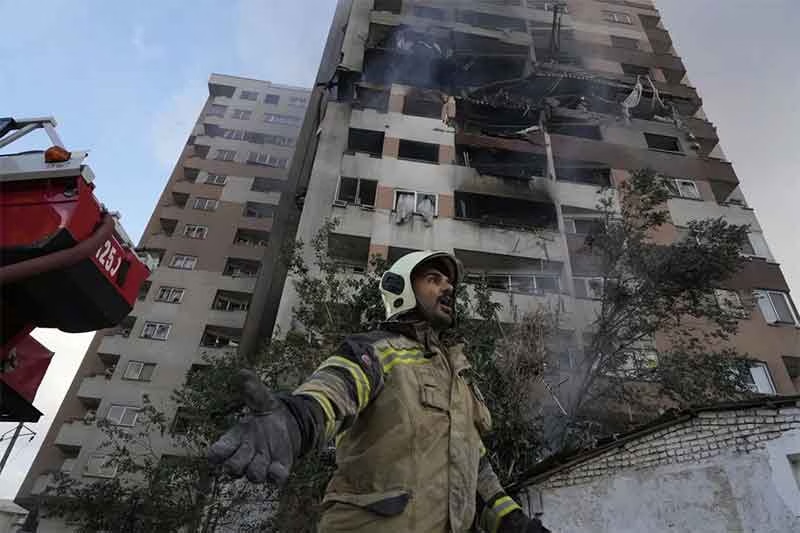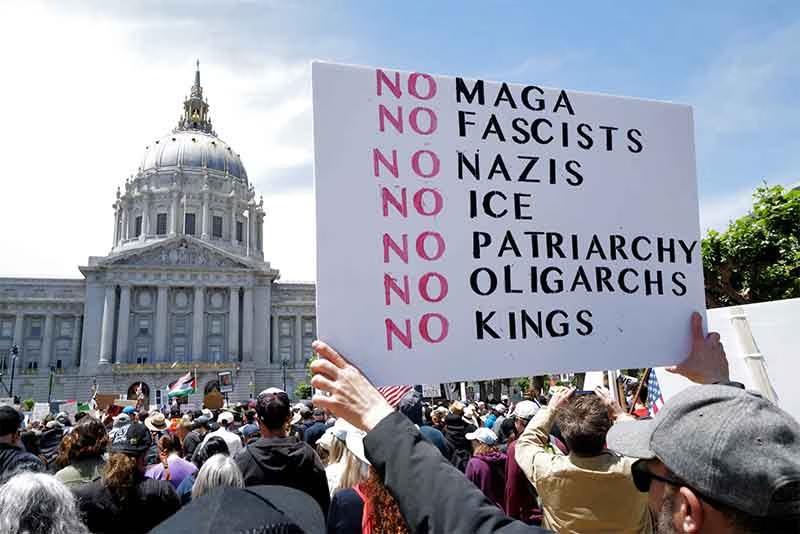
In her book titled “Unheard Truth: Poverty and Human Rights” former Amnesty International Secretary General Irene Khan wrote: “Human rights derive from and are inherent in our common humanity. Everyone has these rights on an equal basis, not by virtue of citizenship of any particular state, but simply because we are human beings. This transcends borders and divisions of all kinds. Action to respect these rights, therefore, falls to each of us within the spheres of our competence and power.”
Such an idealistic vision could be achieved if we lived in a Utopian world. In the 21st century, we live in a world ravaged by war between neighboring countries, civil war, nations unjustly occupied by foreign powers, terrorists terrorizing and killing innocent people in the name of religion. Bigoted people cause havoc and disturb the flow of normal life. Children die of hunger, disease, and malnutrition. In the Gaza Strip, everyday hundreds of children are dying not only from aerial bombardment but also from hunger. Aid is not reaching Gaza as all the entries have been closed by the Israeli forces.
Instead of finding peaceful resolutions, countries go to war for competition over land, territory, nationalism, and religious conflicts. A case in point is the latest Israel/Iran conflict. The former does not want Iran to acquire nuclear weapons. The latter wants Israel to stop the genocide in Gaza. There are other factors contributing to the escalation of the tensions.
As citizens of the world, many world leaders are not following international rules and committing genocides right in front of our eyes. Majority of the world is not really living up to the expectations of the thinkers, policy makers, social scientists, and human rights activists. The world we live in is imperfect, and unequal to say the least.
Approximately about 8.5% people worldwide are now living in extreme poverty. Another 828 million go to bed hungry every night. About 1.1 billion people across the globe live in slums or slum-like cities with many more expected to join them in a few years. They are pushed out from their land either by natural disaster or human cruelty.
The poor and ignored people of society have few rights, legal or otherwise. Many people today do not know where their next meal is coming from. Very nominal employment opportunities are available for the poor throughout the world. In many countries there is no government cooperation to implement human rights policies to protect each citizen. Therefore, they are unable to enjoy their God-given right to live a life of liberty, including economic freedom.
In a lot of third world countries, the plight of girls is most tragic. Many do not have access to education. As a result, their chance to get out of poverty and to stand up for their rights becomes very uncertain. Without education, the girls keep on enduring abuse, and cannot find themselves in a position to fight back against violence.
Furthermore, the predicaments that pregnant women in poor countries go through are simply astounding. They have no prenatal care available to them. During complicated births they cannot go to proper medical facilities to access the right kind of care that they need and deserve. Their diet lacks proper nutrition and these women go through multiple pregnancies. In a number of third world countries, women eat last after the menfolk as a rule, eating leftover scraps. So these underfed women end up giving birth to scrawny, sick babies.
The situation in some of the richest countries is increasingly grim, too. There is little affordable healthcare available for poor people in the USA. Even with the Affordable Care Act (ACA) that was introduced by former President Barack Obama in his second term, many in America cannot afford the monthly premium to get health insurance for themselves and for their families. During Donald Trump’s second term his administration is reversing many Biden-era healthcare policies. Because of that the prescription drug costs and Medicaid will be mostly affected.
As the current Secretary of Health and Human Services Robert F. Kennedy Jr. has taken major initiatives in significant staff cuts, and cancelled many grants for public health departments and universities to conduct research. A federal judge has temporarily paused the staff cuts. Kennedy’s approach to healthcare is controversial though he has pledged to “make America healthy again.” It remains to be seen as it’s a mess out there.
Why do so many factors keep people poor? What is the solution to this denigration of the poor?
According to Irene Khan, “Much more could be done to promote equality, tolerance and diversity through the universal appeal of human rights. And much progress would be made on poverty as a result.”
But when will that be? She wrote this in her book in 2009, and we are in 2025.
Overall, the world has become more about the “enrichment” of a certain class instead of the “empowerment” of those who are deprived and live their days in poverty. A person not enjoying her basic rights as a human being lives each day in fear of the unknown. These individuals go through unimaginable struggles to survive. This has become an epidemic.
Poverty and basic human rights “feed off each other.” Being born poor and unable to come out of the trap is a violation of human rights. When economic freedom is achieved, a state should ensure that someone’s basic human rights are protected. There is no golden rule to follow when it comes to prioritizing which set of rights should get precedence over the other. It is up to the state based on the specific needs of its people.
For example, by examining the Bangladesh human rights violation report, we get a clear assessment of how human rights are violated in our own backyard.
Each year, many people are victims of forced disappearances, and not many make it out alive. Most of the perpetrators who abduct others are never found. Usually, their whereabouts are not known. Very rarely one or two people are sent to jail in connection to the disappearances. This has gone on for decades. People lose lives because of gun fights with law enforcement agencies. Some die in cross fire. Some die in custody. Some are tortured to death. Some are victims of border killings. Journalists lose their lives because of torture during interrogation.
When we look at the result of communal violence we see communities with different religious beliefs are vandalized, their houses are torched. Temples, shrines, idols are destroyed all over. Mosques are demolished and temples are erected in its place. Churches and Synagogues are set on fire. All these are done because of complex and deeply rooted sentiments based on intolerance, ideological differences, hatred, and political extremism.
We hear about terrible stories everyday no matter where we live. I still think of the 15-year-old teen bride Rekha in rural Bangladesh who was beaten to death by her husband and his brother for her inability to make a dowry payment of TK 40,000 in 2014. Such incidents of gross violation of human rights and murders occur each day all across South Asia.
A while back, I read a report where just for pulling a typical prank on another student a teacher somewhere in Bangladesh ordered the student to do 500 squats, by holding his both ears. Afterwards while walking home; the boy had lost consciousness with severe pain in his legs and back. Passersby rushed him to the hospital. Wasn’t this young boy violated in a way where his innocence was robbed in the way he experienced brutality? The punishment he got far exceeded the crime: a simple juvenile mischief. This was a colossal violation of his rights to grow up without fear.
How many ‘lesser’ cases like these go unnoticed by human rights organizations and the media? Human rights organizations such as Amnesty International, Human Rights Watch etc. should stand up for the rights of all victims. By ruthlessly, and continually exposing the injustices plaguing societies the cases will be few and far between. Just by taking to the streets, protesting against violence against women, and children does not stop the perpetrators. Passing stricter laws alone are not sufficient. Enforcing that law as well as “a comprehensive approach that incorporates education, community programs, policy reforms addressing systemic inequalities, and a collaborative mindset is needed to effectively tackle complex societal challenges.”
Though it will read like a cliché, I have to conclude by saying: Let us remember, in the end good triumphs over evil. Let us hope the fighting nations will realize war is not the answer, we need peace. Let us hope vulnerable women will experience no violence. Poverty and voiceless-ness will be replaced with empowerment and capability. Let us hope the U.S. can stop Israel’s weaponization of hunger in Gaza. With positive goals, determination and dedication, we can bring comfort to the afflicted, and light to the darker places in the world. We mustn’t give up on hope. If we do, then it leads us to feel trapped, and envisioning a positive future becomes unattainable.
Subscribe to Our Newsletter
Get the latest CounterCurrents updates delivered straight to your inbox.
Zeenat Khan writes from Maryland, USA




























